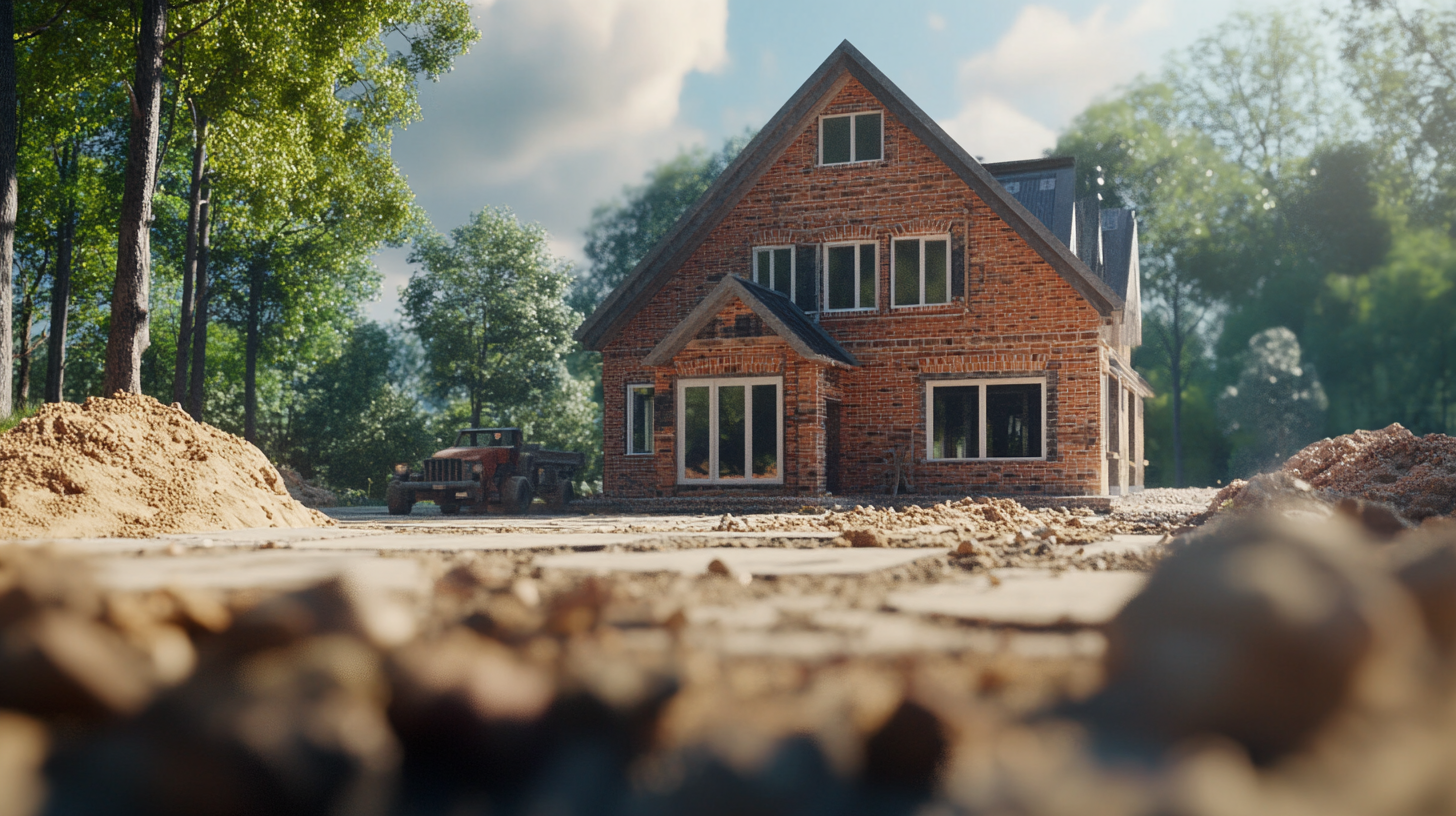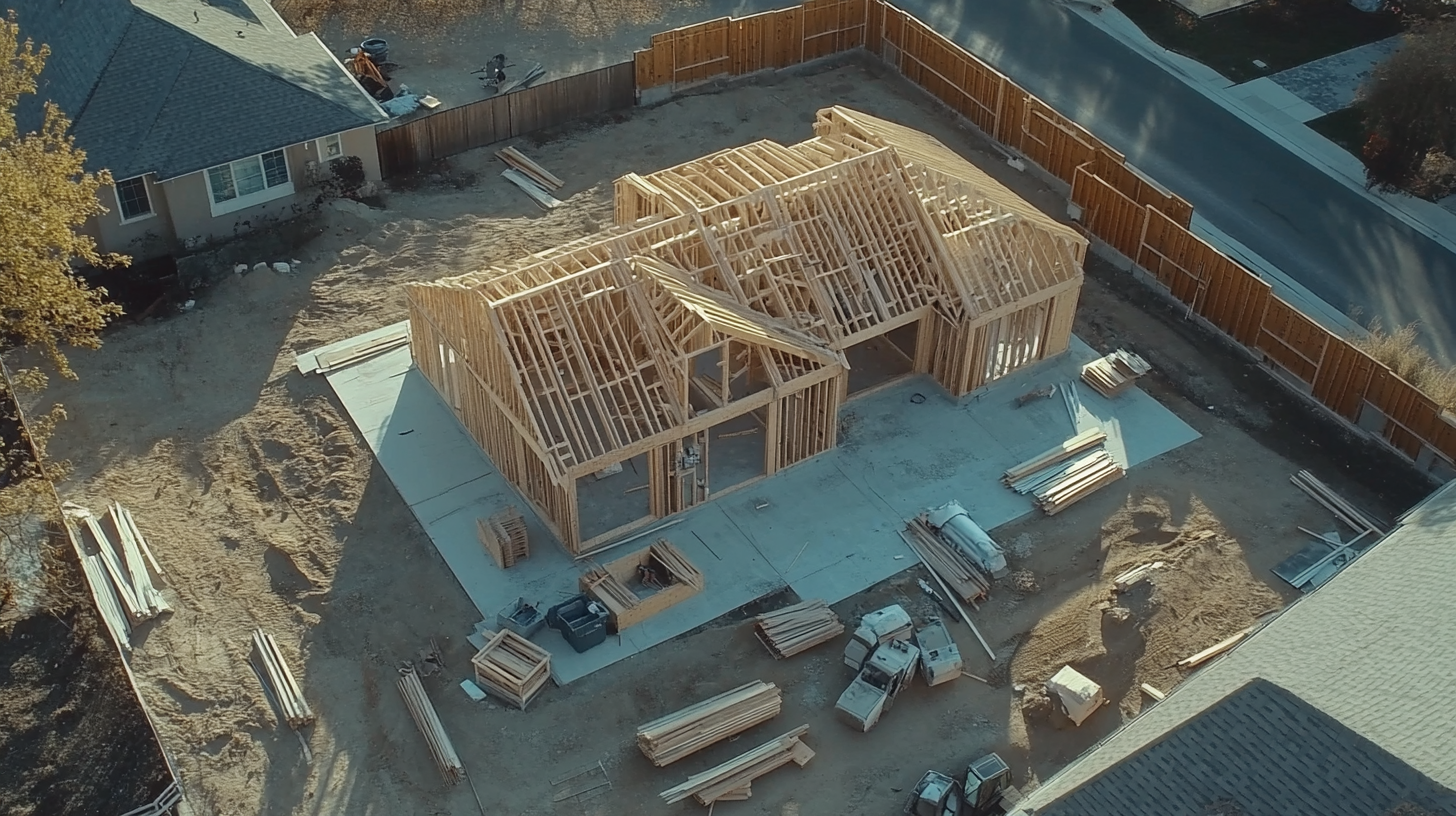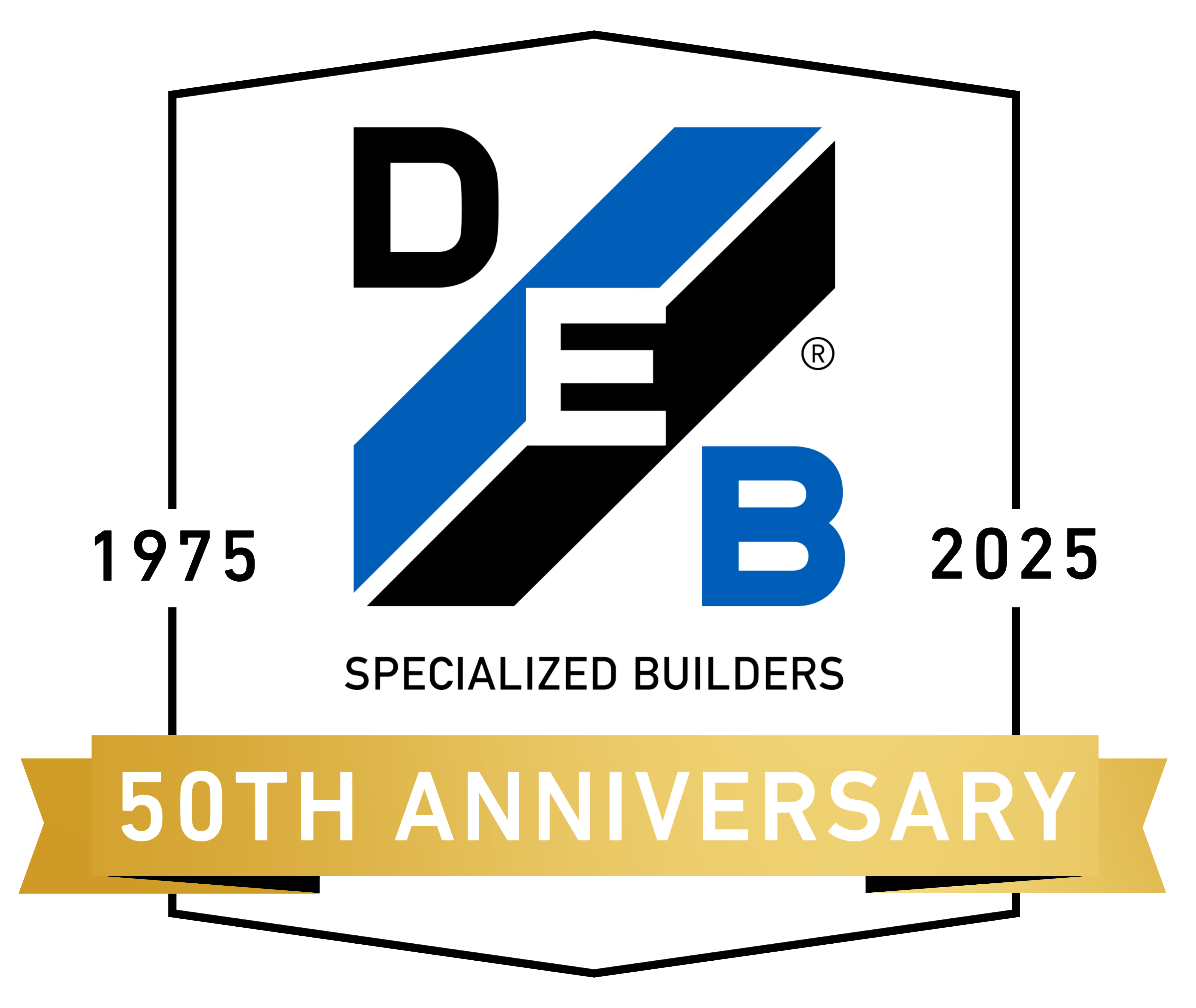7 Secrets to Mastering General Construction for Your Next Project
In the world of building and renovation, mastering general construction is essential for anyone looking to embark on a successful project. Whether you are a seasoned contractor or a budding DIY enthusiast, understanding the principles of general construction can significantly impact the outcome of your endeavors. This comprehensive field encompasses everything from foundational work to the final finishes, making it crucial to grasp the various aspects involved.
As you prepare for your next project, the secrets to mastering general construction will not only streamline your process but also enhance the quality and durability of your work. By delving into these essential strategies, you'll gain valuable insights into effective planning, resource management, and execution techniques. These secrets will empower you to navigate potential pitfalls and ensure that your project is completed on time and within budget, ultimately leading to successful and satisfying results.

Key Strategies to Efficiently Manage Timelines and Budgets in Construction Projects
Managing timelines and budgets effectively is crucial for the success of any construction project. One of the first strategies to consider is meticulous planning. By creating a comprehensive project plan that outlines every phase of the construction process, you can foresee potential bottlenecks and allocate resources more efficiently. Utilize scheduling tools to map out timelines, ensuring that each task is realistic and achievable within the set deadlines. Regularly updating this plan as the project progresses helps to keep the team accountable and focused on the upcoming goals.
Budget management is another critical aspect that cannot be overlooked. Establish a clear budget at the outset, breaking down costs into categories, such as materials, labor, and contingencies. This transparency allows for better tracking of expenses and helps to avoid overspending. Incorporating a contingency fund for unexpected costs is also a smart move. Keeping a close eye on current expenditures and adjusting estimates as necessary will help maintain financial control throughout the project.
Communication is key in achieving both timeline and budget goals. Regular meetings with the entire project team, including contractors and subcontractors, foster an environment of collaboration and quick problem-solving. Utilizing project management software can enhance this communication, allowing everyone to stay informed about changes and updates in real-time. As a result, swift decisions can be made, minimizing delays and ensuring that the project proceeds smoothly without straying from its financial objectives.

Understanding Industry Best Practices for Material Selection and Sustainability
Mastering general construction requires not only an understanding of material selection but also a keen awareness of sustainability practices that are increasingly vital in today's industry. Recent trends indicate that major suppliers like BASF are moving beyond traditional economic standards when evaluating vendors. They place significant emphasis on environmental, social, and governance (ESG) criteria, aligning their practices with global initiatives such as the UN Global Compact and the International Labour Organization conventions. This holistic approach ensures that the materials selected for construction projects not only meet performance expectations but also adhere to high sustainability standards.
Moreover, advances in technology are paving the way for more sustainable design solutions. Siemens recently updated its NX™ product engineering software, which integrates design, engineering, and manufacturing processes. This tool not only enhances product design efficiency but also champions sustainability by enabling designers to assess the environmental impact of their materials and manufacturing processes early in the design phase. According to a report by the World Economic Forum, sustainable building practices can reduce lifecycle emissions by up to 80%, underscoring the urgency of adopting such technologies in construction.
The shift toward sustainability is not just a trend; it is becoming the industry's best practice. Companies like OMV are already adapting to this reality by leveraging integrated business processes supported by platforms like SAP S/4HANA, which optimize operations for sustainable growth. In a recent survey conducted by McKinsey, 70% of construction leaders reported that sustainability is a critical driver for their long-term strategies. Therefore, in your next project, ensuring that material selection is aligned with these best practices will not only comply with regulatory pressures but also contribute positively to the environment and society as a whole.
7 Secrets to Mastering General Construction for Your Next Project
| Secret | Description | Best Practices | Sustainability Tips |
|---|---|---|---|
| 1. Choose Quality Materials | Selecting high-quality materials can enhance longevity and aesthetics. | Research suppliers, inspect samples, and consider warranties. | Opt for recycled materials where possible. |
| 2. Energy Efficiency | Incorporate energy-efficient solutions to reduce long-term costs. | Utilize LED lighting and energy-efficient appliances. | Consider solar panels and other renewable energy sources. |
| 3. Waste Management | Effective waste management practices help keep sites clean. | Implement recycling stations and track waste disposal. | Minimize waste by using prefabricated elements. |
| 4. Skilled Workforce | A skilled workforce ensures quality and safety on site. | Invest in training and certifications for workers. | Encourage ongoing education in sustainable practices. |
| 5. Communication | Clear communication among all stakeholders is essential. | Utilize project management tools for updates. | Host regular sustainability meetings. |
| 6. Building Codes | Understanding local building codes ensures compliance. | Review codes before project commencement. | Stay informed about changes in sustainability regulations. |
| 7. Post-Construction Evaluation | Evaluate the construction process for future improvements. | Gather feedback from stakeholders. | Assess sustainable performance after project completion. |
Leveraging Advanced Technology to Enhance Project Efficiency and Safety
In today's fast-paced construction industry, leveraging advanced technology has become essential for enhancing project efficiency and ensuring safety on site. From drones to Building Information Modeling (BIM), these innovations are transforming traditional practices and offering solutions to common challenges faced in construction projects.
Drones, for instance, are revolutionizing site surveys, allowing project managers to obtain real-time data and aerial views of construction sites. This technology not only saves time but also reduces labor costs by minimizing the need for manual inspections. With high-resolution imagery, teams can monitor progress, assess difficult-to-reach areas, and identify potential issues before they escalate, ultimately leading to more informed decision-making and smoother project execution.
Additionally, incorporating BIM in the construction process fosters collaboration and improves communication across all stakeholders. With a centralized digital 3D model, architects, engineers, and contractors can visualize the entire project, making it easier to identify design flaws early on. This proactive approach not only streamlines the workflow but also ensures that safety protocols are integrated from the start, reducing the risk of accidents and enhancing overall site safety. By embracing these advanced technologies, construction teams can not only meet project deadlines more effectively but also create a safer working environment for everyone involved.
Project Efficiency and Safety Enhancement in General Construction
Building a Skilled Workforce: Importance of Training and Certifications in Construction
The construction industry is facing significant labor gaps, yet innovative programs and initiatives are actively working to bridge these divides. The District of Sault Ste. Marie’s Social Services Administration Board is making strides to build a skilled workforce by providing support for training construction workers, ensuring that local businesses have access to a trained labor pool. Similarly, in Madison County, businesses are teaming up to offer workforce education options that fill the skilled trades gap, demonstrating a proactive approach to training and employment in construction.
A notable initiative is the Go Build Alabama campaign, which recently launched an updated training page as a centralized resource for skilled trades education. This effort highlights the urgent need for qualified personnel in the construction sector, as reports show that nearly 70% of construction firms are struggling to find qualified workers. In response to high demand, Google is also investing in training opportunities for young people in Nebraska, aiming to facilitate their entry into the construction and skilled trades job market. This commitment reflects a growing recognition of the importance of skills training and certifications, essential for cultivating a robust workforce that can adapt to the industry's evolving needs.
Training programs not only bolster workforce capabilities but also play a vital role in fostering a sustainable future. The rise of the green workforce emphasizes the need for skilled workers who are not only adept in traditional construction but also knowledgeable about sustainable practices. As the construction landscape shifts towards environmentally friendly methods, ongoing education and certifications will be paramount in creating opportunities and meeting the demands of a changing industry.
Common Pitfalls to Avoid When Planning Your General Construction Project
When embarking on a general construction project, it's crucial to be aware of common pitfalls that can derail your plans. One of the most significant mistakes is failing to conduct thorough research and planning. Understand the scope of your project, including the necessary permits, budget constraints, and materials required. Many homeowners and project managers underestimate the importance of a well-crafted plan, which can lead to delays and increased costs. Investing time upfront in detailed planning can save you from unexpected complications down the line.
Another prevalent pitfall is neglecting to communicate effectively with all stakeholders, including contractors, suppliers, and even neighbors. Clear and open communication can prevent misunderstandings and help ensure that everyone is on the same page regarding timelines and expectations. Establishing regular check-ins can foster collaboration and address any issues before they escalate into larger problems. Furthermore, keeping your team informed can enhance morale and productivity, contributing to a smoother construction process.
In addition, not addressing potential environmental concerns early in your project can result in costly setbacks. Be proactive in assessing the site for any ecological impacts or zoning regulations that could affect your plans. Recognizing these issues at the beginning allows you to make necessary adjustments, ensuring your project remains compliant and sustainable. By avoiding these common pitfalls, you can enhance the likelihood of a successful general construction project.




